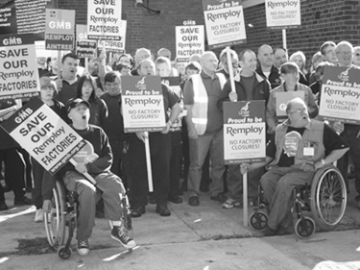Agency Exploitation
The unions hailed the agreement on equal pay for agency workers “as a victory for union campaigning”. They must be joking. The agreement excludes sick pay and pensions and only guarantees the same pay as permanent staff after twelve week
The tragedy is that, for once, the unions were in a powerful position. The EU was about to impose an agreement on Britain introducing a 6-week period that would later lead to agency workers getting the same pay as permanent staff from day one. All they had to do was refuse to compromise and wait for the EU directive to be effective.
As things stand, the government can go to the EU arguing they have the agreement of the unions, which should be enough to ensure Britain can keep the 12-week period. Not only that, Labour is hopeful that, having conceded the principle of equal treatment for agency workers, they will be allowed to keep Britain’s opt-out in the soon to be renegotiated working time directive.
A victory for union campaigning? Or unprincipled trade unionism? Union leaders have sacrificed the right of hundreds of thousands of low paid agency workers to show they are business-friendly and prepared to put the interests of the bosses before those of union members.

